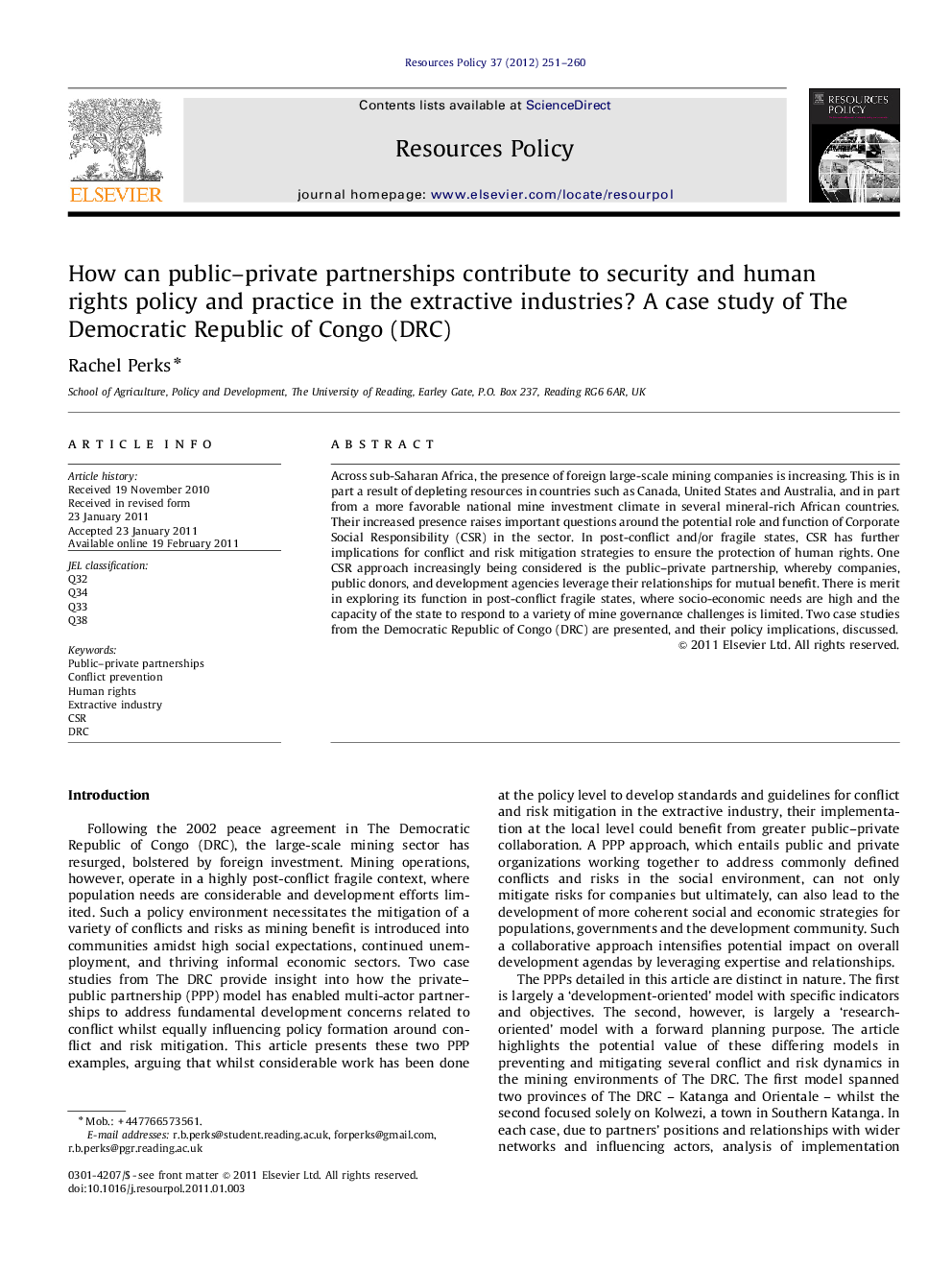| کد مقاله | کد نشریه | سال انتشار | مقاله انگلیسی | نسخه تمام متن |
|---|---|---|---|---|
| 985936 | 934723 | 2012 | 10 صفحه PDF | دانلود رایگان |

Across sub-Saharan Africa, the presence of foreign large-scale mining companies is increasing. This is in part a result of depleting resources in countries such as Canada, United States and Australia, and in part from a more favorable national mine investment climate in several mineral-rich African countries. Their increased presence raises important questions around the potential role and function of Corporate Social Responsibility (CSR) in the sector. In post-conflict and/or fragile states, CSR has further implications for conflict and risk mitigation strategies to ensure the protection of human rights. One CSR approach increasingly being considered is the public–private partnership, whereby companies, public donors, and development agencies leverage their relationships for mutual benefit. There is merit in exploring its function in post-conflict fragile states, where socio-economic needs are high and the capacity of the state to respond to a variety of mine governance challenges is limited. Two case studies from the Democratic Republic of Congo (DRC) are presented, and their policy implications, discussed.
Research highlights
► Public–private partnerships are examined in the mining sector of The Democratic Republic of Congo.
► I examine specifically PPP approaches to improve conflict prevention and human rights promotion.
► Three areas are explored through case studies to demonstrate PPP value to responsible mine policy and practice: policy coherence on development and governance; artisanal and small-scale mining; and conflict analysis and decision-making.
► The case studies conclude that PPPs can make use of actors' networks, refine policy by modeling better practice, and influence local level resource distributions.
Journal: Resources Policy - Volume 37, Issue 2, June 2012, Pages 251–260